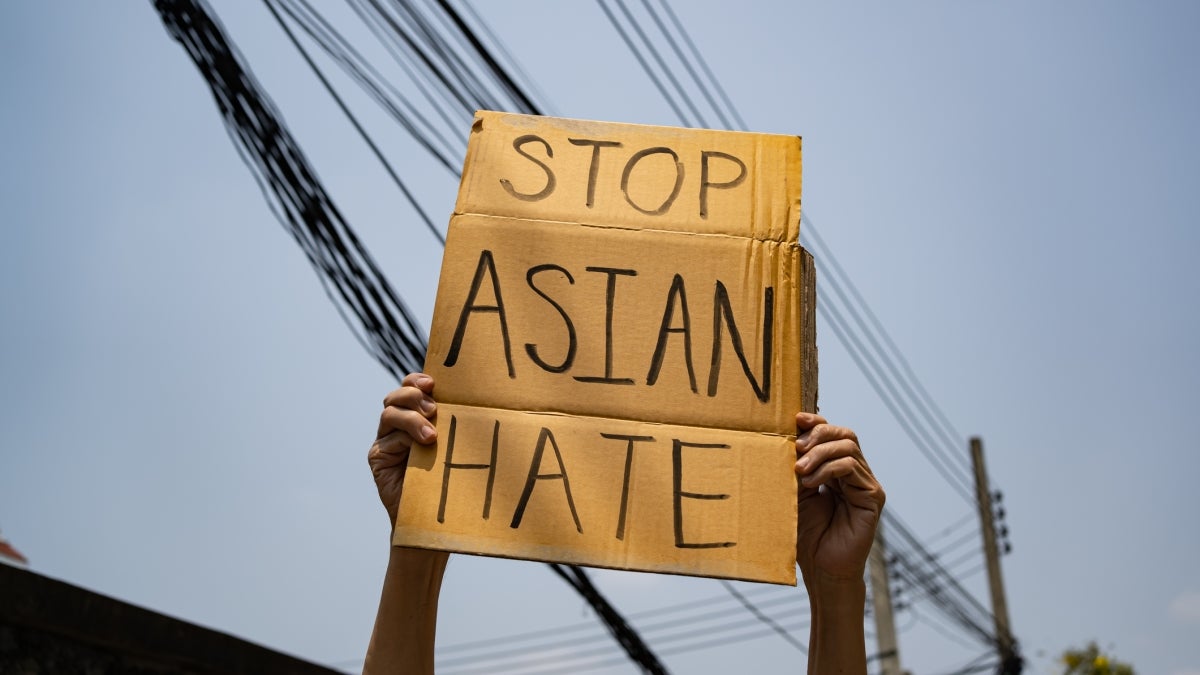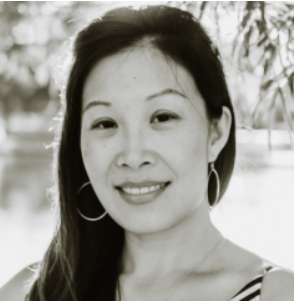Community members join story circles to address anti-Asian racism during COVID-19

Photo by Wachiwit/iStock
Following a rise in xenophobia directed toward Asian Americans at the beginning of the COVID-19 pandemic, the past few months have seen a string of high-profile attacks that increased awareness of violence against members of the Asian American community.
Since the shutdown began over a year ago, nearly 3,800 Asian Americans have reported being victims of racist physical or verbal attacks, according to Stop AAPI Hate, a group formed last year to draw awareness to this issue.
To provide an opportunity for the community to come together and address the rise of anti-Asian hate crimes through conversation, the Hugh Downs School of Human Communication at Arizona State University held a Storyscope Project event, “Surviving Anti-Asian Racism During COVID-19.” The event was held via Zoom on April 17.
The event was organized and hosted by Lauren Mark, an instructor and doctoral candidate at the Hugh Downs School. It allowed attendees to share their stories in small groups called story circles.
“I congratulate Lauren for hosting and organizing this successful Storyscope event,” said Jennifer Linde, a principal lecturer who co-founded the Storyscope Project with John Genette in 2017. “Lauren invited attendees to share stories to process the fear, anger, disgust and grief connected to recent anti-Asian rhetoric and violence. As an attendee, I was moved by the stories that were shared and left the event with a sense of community, support and connection.”
Linde explains that the Storyscope Project uses story circles to build a sense of community by fostering inclusiveness.
“Its mission is to make people feel included, to make people feel like their voices are being heard, and allow them to tell their authentic stories without judgment,” she said.
Mark explains that story circles at this event were made up of both Asian Americans and allies.

Lauren Mark
“Those of us who are Asian Americans were able to voice experiences that we don't normally get the chance to share, and to be upfront about what being Asian American meant to us before this pandemic, and how COVID-19 has reshaped our sense of this,” Mark said.
“You wouldn't think that this was possible had you not experienced it, but after a very short period of time in this circle, you feel incredibly close with the other four or five members of your story circle.”
A student in Mark’s class, Michael Tai, sent her an email to thank her for holding the event.
“I feel an even stronger connection to my identity and community, I feel like I learned so much, and I feel so centered right now. It has been a while since I shared my feelings so openly and freely without any hesitation,” he wrote.
Mark relays that some of the stories shared on the Zoom event were about connections.
“There was one woman who attended virtually from Oakland, who is part of a volunteer coalition that escorts elderly Asians when they need to run errands or get medical checkups. They accompany them to keep them safe from being attacked,” she said.
“The woman told us that she recently went with an older woman to the market to pick out some fish. And that act of normalcy and connection reminded her of what had been missing from her life for such a long time. The overwhelming thread that emerged among storytellers was how Asian Americans and Asians in America have become so socially isolated during COVID because we are often afraid to go out. One of the most recent surveys shows that a third of Asian Americans reported being afraid that someone will attack or threaten them. That’s an insanely high number. My relatives who live in New York City are afraid to ride the subway.”
Mark says the group also talked about focusing on things they could control, such as noting moments of gratitude and meaning, proactively extending one’s sense of family to include wider networks, and building coalitions across cultures.
In the end, Mark encourages everybody to take the time to really listen to other people's stories.
“If you feel like that opportunity is being presented to you to ask people about their stories, then do so," she said. And not just to inform yourself, because that's just asking other people to expend yet more energy and more labor to do your work for you. Only ask if you are willing and able to offer something in solidarity, whether that's going to be emotional support, to walk with someone in the park, to the grocery store if they feel unsafe, or to check in with them.”
More Arts, humanities and education

Grand Canyon National Park superintendent visits ASU, shares about efforts to welcome Indigenous voices back into the park
There are 11 tribes who have historic connections to the land and resources in the Grand Canyon National Park. Sadly, when the…
ASU film professor part of 'Cyberpunk' exhibit at Academy Museum in LA
Arizona State University filmmaker Alex Rivera sees cyberpunk as a perfect vehicle to represent the Latino experience.Cyberpunk…

Honoring innovative practices, impact in the field of American Indian studies
American Indian Studies at Arizona State University will host a panel event to celebrate the release of “From the Skin,” a…